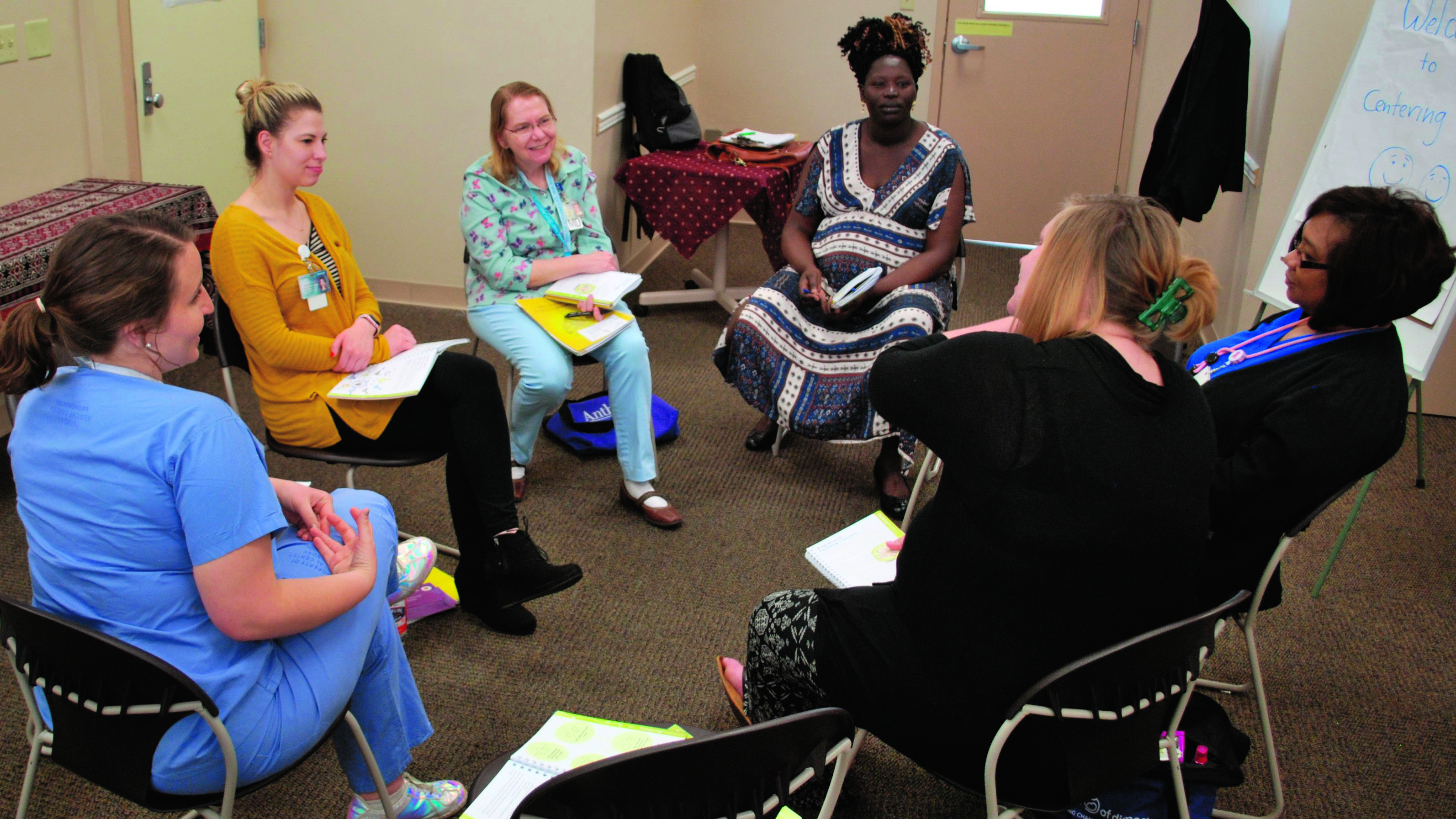

LOUISVILLE On her very first night as a third-year medical student on obstetrics, Carol Brees, MD, delivered three babies. “I went home so high that night,” she says. “I have always loved OB/GYN as a specialty.” Brees, who now practices as an OB/GYN with University of Louisville Hospital, initially worked in family medicine overseas but later completed her OB/GYN residency.
Helping the Vulnerable
Beginning in 1987, Brees and her husband, a Presbyterian pastor, lived and practiced in Pakistan for 16 years at a hospital there. The cultural sensitivity Brees developed overseas made her a perfect fit for the patients at University Hospital.
“One of the things I love about working here is our population is incredibly diverse,” says Brees. “We have inner city folks, University of Louisville employees, and others who work downtown. I have precepted the teenage parent program with Jefferson County Public School (JCPS). We get referrals from our faculty infertility practice, which are some of our older patients. We are also site of choice for the refugee resettlement program, so we have several languages spoken, and a lot of cultural diversity,” says Brees.
It was this last patient population that inspired Brees to begin the Centering Sessions program in November 2016 for pregnant women, supported with a March of Dimes grant. The idea of Centering Pregnancy is to bring women of similar gestation stages together for two-hour group appointments and support.
“That’s what drew me to the model in the first place. I started looking at this because some of our refugee populations are used to a group society and a group way of doing things, and I thought this might be a way to improve their compliance with prenatal care,” says Brees. She hasn’t had a chance to test her theory since all the Centering groups so far have been English speaking, but she says the patients have responded very positively.
“It’s a fun model, and when our residents get to lead it they are really loving it, too. When I first heard about when our Centering Pregnancy model, I thought, ‘Why wouldn’t you want to do it that way?”
Centering Program Offers Convenience, Cultivates Community
A new class is beginning about every other month, says Brees, but the classes need to reach an average of 8–10 patients to be completely self-sustaining. Most sign-ups for the classes are coming from Brees’ own obstetric patients at this point. There is no additional fee for the sessions since they are actual prenatal appointments. “We have a very busy practice, so it’s hard for the nurses and doctors to get the patients all the critical information they need, much less information about Centering sessions, but we are trying to spread the word.”
Benefits to Centering are numerous, but convenience is certainly key, says Brees. “Centering means it’s all in one package and you can get both your health assessment and your prenatal education with other women, all about same gestation of pregnancy that can support each other. Rather than having to come to your prenatal visit and wait sometimes two hours in a room by yourself to see your doctor, and then also have to carve out a night of the week to come to prenatal classes, it’s all done together,” says Brees.
Brees explains that the structure of the groups means women are more participatory in their own care. When the women first arrive and for the first half hour, there are snacks laid out and music playing, and the patients check their own weight and blood pressure and record it in their Centering booklet. Next, the women are seen one at a time behind a screen for tummy checks while the others have time to chat. At that time, a patient could ask Brees about anything on their minds, and if the doctor feels it might be pertinent to the group, she asks them to share during discussion time.
For the remaining hour and a half, the women circle up, and led by Brees and residents, get instruction and have discussion around a prenatal topic, for example, the common discomforts of pregnancy. “The Centering curriculum encourages fun activities like charades, where the women might act out those pregnancy discomforts, and talk about how they manage them. The games and exercises keep everyone engaged, and they share with one another about different aspects of pregnancy,” says Brees.
Women Learning and Bonding Together
Since the women in each group are all due around the same date, they are going through the experience together, something first time mom-to-be Ashley Barnes says she appreciates. Barnes, 22, a single mother, is due June 1. She admits she is “terrified but excited” about the imminent arrival of her baby boy, Christopher, and finds it helpful to learn the ins and outs of pregnancy and managing a newborn, as well as being in a no-judgement zone with other women like her. “When we get together, it’s like a big family. It’s a support group – to support you so you don’t feel so alone, especially in my case where I am alone,” says Barnes.
Not all the women involved in the Centering sessions are first-time moms. Agok Bol, 35, originally from Southern Sudan, is having her fourth baby. Her new daughter will join her sons, 11 and 8, and a 2-year old daughter. “I’m not a new mother, I’m the old mom,” Bol jokes. “What I went through before – with the new mothers coming through, I’m here to help,” she says. Bol says she is sharing with other women in her community about the sessions, which her husband attends with her. “I say centering, and they say what is centering? I say it’s where you go and there are doctors and nurses there and other pregnant women. You talk about ideas and you have questions and they answer them. It’s not just checking the baby and going home like a doctor’s appointment. It’s a community.”


